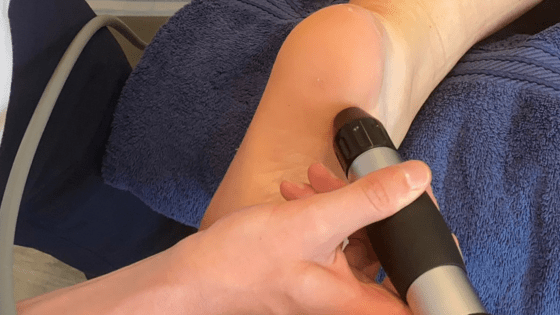What is Plantar Fasciitis?
Plantar fasciitis is a painful condition of the foot caused by repetitive strain to the plantar fascia. This is a fibrous band of soft tissue connecting your heel bone to your toes. It’s main function is to support the arch of your foot, acting as a shock absorber when making contact with the ground.
How can Plantar Fasciitis be treated?
Plantar fasciitis is the most common cause of heel pain, occurring in around 10% of the general population. It usually responds well to conservative physiotherapy treatment such as massage and stretching, however it will likely take on average six months to fully resolve. This is because you spend so much time up on your feet making it hard to effectively rest the inflamed area and provide the required conditioning to enhance healing. This is where Radial shockwave therapy comes in.
Is Shockwave effective at treating Plantar Fasciitis?
The shockwave treatment allows effective non-invasive stimulation over the plantar fascia, encouraging rapid generation of new blood vessels which in turn triggers the natural healing response. Damaged or injured tissues within the plantar fascia will begin to repair and cause the associated pain to reduce.
Radial shockwave therapy will be combined with conservative treatment and management techniques to ensure the most effective treatment approach is being carried out. As the pain settles stretching and mobilisation of the plantar fascia will become more tolerable which helps to free up movement making activities such as walking easier and less pain provoking.
Medical evidence shows a 90% improvement when plantar faciitis is treated with shockwave combined with rehabilitation, (NICE guidelines).
To book your shockwave appointments with Physio-logical, based in Rowlands Castle, Hampshire then please book online, call 02394 350270 or email us at enquiries@physio-logical.net. Research suggests 5-6 sessions are optimum at intervals of 5-10 days between appointments.




